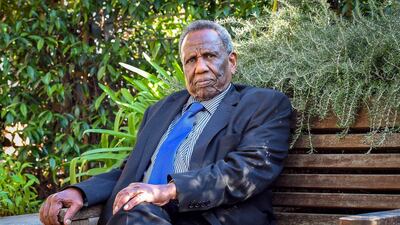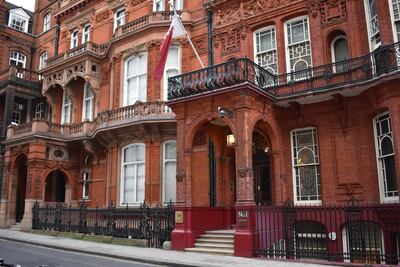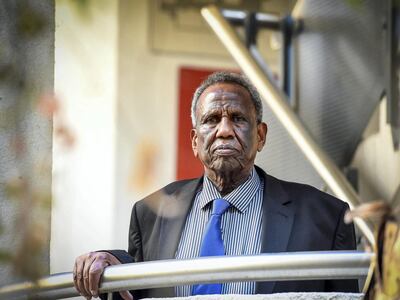A 79-year-old man who claims he was physically and racially abused by a Qatari diplomat while working at the country's embassy in London will finally have his case heard next month, almost six years after launching legal proceedings against the diplomatic mission.
Somali-born Mohamoud Ahmed, from Kensington, worked as a receptionist at the embassy for more than 20 years before being dismissed at the age of 73 in August 2013.
He claims to have been subjected to racial discrimination by Abdullah Ali Al Ansari, who served as the medical attaché during the latter years of his employment at the Mayfair mission.
Mr Al Ansari allegedly called Mr Ahmed a “black slave”, “donkey” and a “dog” before assaulting him on more than one occasion.
Mr Ahmed claims that when he stood up to the abuse, he was immediately sacked.
He claimed unfair and wrongful dismissal as well as racial discrimination in 2014, but proceedings were delayed for years while the embassy tried to claim diplomatic immunity using a controversial British law known as the State Immunity Act.
After years of delay while courts ruled on whether staff of foreign embassies were entitled to British employment rights, a 2017 judgment by the Supreme Court provided a breakthrough for Mr Ahmed and other mistreated staff at embassies across the UK.
The court ruled that claiming immunity from employment laws was incompatible with the European Convention on Human Rights.
While the State Immunity Act would need to be amended to enable Mr Ahmed to bring an unfair dismissal claim, the ruling has allowed the pensioner to sue the embassy for racial discrimination and injury to feelings.
"Previously the State Immunity Act prevented the embassy from being sued but as a result of the Supreme Court decision two years ago, it is now permissible to sue an embassy," Mr Ahmed's lawyer, Rachel Lester of Axiom Stone solicitors, told The National.
“The embassy has been able to hide behind the shield of state immunity for many years. This is going to be one of the first ever discrimination cases ever to go to trial against an embassy in the UK.
“We hope this will shine a light on the abuse of employment rights and human rights by the embassy of Qatar that my client is entitled to.”
Ms Lester said Mr Ahmed, who has lived in the UK for more than 40 years and is a British citizen, remains determined to get justice after his ordeal.
“He has been waiting a long time,” she said. “He was subjected to many years of this kind of treatment and he sees this as a real opportunity to highlight abuse in embassies and try to stop this from happening again.”
As Mr Ahmed’s discrimination claim is dependent on a European human rights law, his legal team have demanded that judgment on his case is given before Britain’s scheduled departure from the European Union on March 29.
The trial is set to run between March 7 and 15 at the Central London Employment Tribunal.
As a result of the short time frame in between the case being listed in December 2018 and the trial beginning, Mr Ahmed's family have set up a crowdfunding page to raise £25,000 (Dh121,500) to fund the final legal fees.
A statement on the crowdfunding page describes the pensioner as being a “committed, dedicated and hard-working” employee and details some of the abuse he suffered.
“This is a landmark case… We hope to bring to light Qatari human rights abuses that have been suppressed for too long. I hope that with your support, we not only receive justice for my father, but will help to prevent other human rights violations in London embassies,” the statement continues.
Mr Ahmed's son Rashid told The National that his father's case was an "embarrassment" for Qatar as the country prepares to host the most prestigious international event in the football calendar, the Fifa 2022 World Cup.
“This case puts a black mark on their whole nation,” Mr Ahmed said.
The Qatar embassy did not respond to repeated requests for comment from The National.




